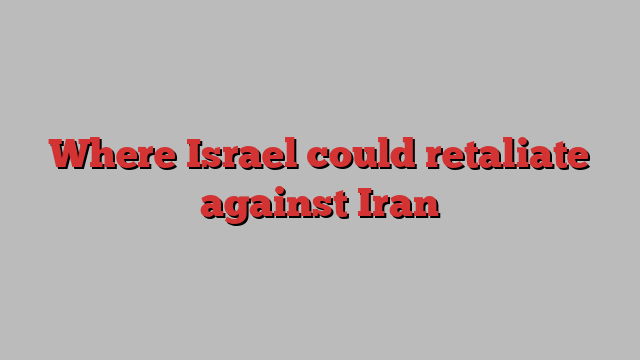
When Iran launched missiles at Israel in April, Benjamin Netanyahu’s government opted for a limited response, hitting back with a precision strike on an air defence system near Isfahan that showed Israel’s technological prowess, but did not force an escalation.
But in the wake of the 180-missile barrage from Iran on Tuesday night — which Israeli officials said was larger than anticipated — the Israeli response is expected to be less restrained. “Iran made a big mistake tonight,” Netanyahu said following the salvo. “And it will pay for it.”
Current and former officials say Israel’s options include attacks in Iran, such as on missile launchers or oil infrastructure. And some have even called for the more extreme scenario of strikes against its nuclear facilities.
One of the factors Israel had to bear in mind when responding to Iran’s April barrage — which Tehran launched in retaliation for a presumed Israeli strike on its embassy compound in Damascus — was that Iran could direct the allied Lebanese militant group Hizbollah to unleash a barrage of rockets at Israeli cities.
But Israel’s devastating recent offensive against Hizbollah has reduced its ability to do damage, according to Israeli officials. In recent weeks Israel has killed Hizbollah’s leader Hassan Nasrallah, decimated its chain of command and launched a massive bombing campaign in Lebanon that killed more than 1,000 people and degraded swaths of the group’s missiles and launchers.
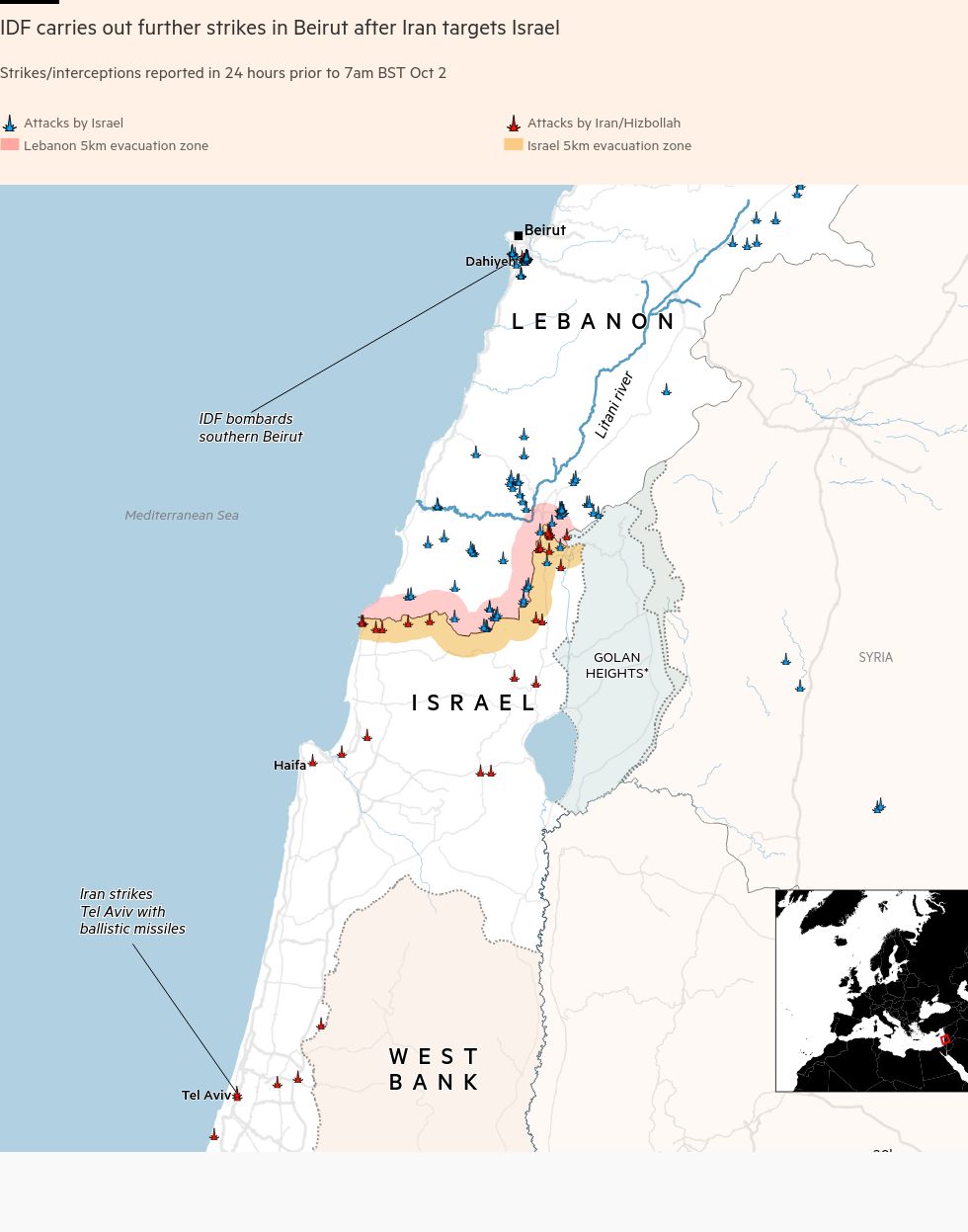
The US, which played a key role in restraining Israel in April, seems less likely to hold its ally back this time. Jake Sullivan, US national security adviser, said Iran would face “severe consequences” for its latest barrage, which Tehran said was a response to the assassinations of Nasrallah and Hamas’s political leader Ismail Haniyeh in July. He added that the US “will work with Israel to make that the case”.
The start of Israel’s recent offensive against Hizbollah — which began last month after thousands of the group’s pagers detonated en masse, killing more than 30 people and injuring more than 3,000 — provided a glimpse of the type of options at the disposal of Israel’s military and intelligence services.
Israel has repeatedly been linked to covert operations in Iran itself during its decades-long shadow war with the Islamic republic. In 2010, a cyberweapon called Stuxnet wreaked havoc in the country’s nuclear centrifuges by causing them to spin out of control. In another case a prominent nuclear scientist was assassinated outside Tehran with a remote-operated machine gun in 2020.
But given the scale of Iran’s barrage, which a person briefed on the situation said had targeted military and intelligence bases near Tel Aviv and facilities elsewhere, Israel is widely expected to respond by striking Iranian targets directly.
“It does not exclude other options — but for sure there should be a kinetic element in the Israeli response,” said Yaakov Amidror, a former national security adviser to Netanyahu and fellow at the Jewish Institute for National Security of America in Washington.
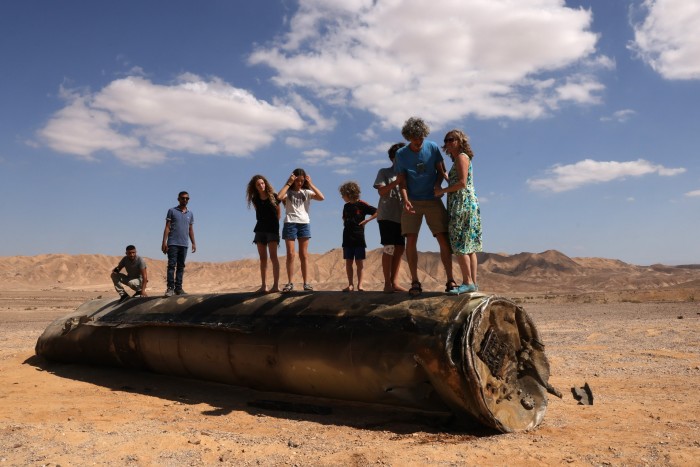
The person briefed on the situation said various options were under consideration but one “gaining momentum” was a strike that would hit Iran economically, such as by targeting its oil production facilities.
Israel on Sunday carried out a similar operation against Iran-backed Houthi rebels in Yemen. Israeli fighter jets, supported by intelligence and mid-air refuelling aircraft, flew 1,800km — further than they would need to do to attack Iran — to bomb power plants and a port used to import oil and other military supplies.
Amidror said that operation could be a “prototype” for a raid on Iran, although a strike on the Islamic republic would be “more complicated”. The option is also unlikely to win favour with the US administration, which would be wary of disrupting oil markets in the weeks before the presidential election.
An alternative, which diplomats said western capitals had been attempting to persuade Israel to choose, would be for it to hit Iranian missile launchers involved in Tuesday’s barrage. They argued this would be seen as a symmetrical response and less likely to trigger a further cycle of retaliation.
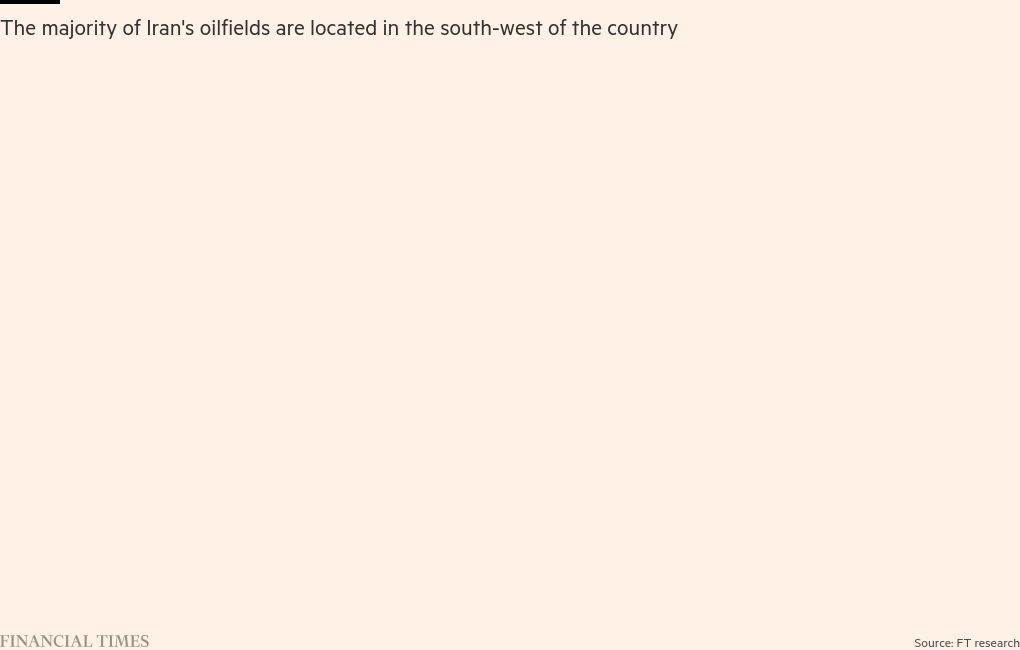
Israel could also target senior figures in Iran instead of infrastructure. In his response to Iran’s missile salvo, Netanyahu name-checked several Hamas and Hizbollah leaders recently assassinated by Israel, such as Mohammed Deif and Nasrallah, warning they had not understood “our determination to defend ourselves and to exact a price from our enemies”.
“Apparently, there are those in Tehran who do not understand this either,” the prime minister said. “They will.”
Beni Sabti, a researcher in the Iran programme at the Institute of National Security Studies in Tel Aviv, said he doubted Israel would do something as escalatory as targeting Iran’s supreme leader Ayatollah Ali Khamenei. But he said senior figures in Iran’s Revolutionary Guard or advisers to the leader could be a target. “If they are not there, part of the leader is not there,” he said.
Hawks have called for Israel to go further, and use the opportunity created by the weakness of Hizbollah — which Iran built to be a deterrent against Israeli attacks — to target the Islamic republic’s nuclear programme, which Israel views as its most serious strategic threat.
“Israel has now its greatest opportunity in 50 years, to change the face of the Middle East,” former prime minister Naftali Bennett wrote on X. “We must act now to destroy Iran’s nuclear program, its central energy facilities, and to fatally cripple this terrorist regime.”
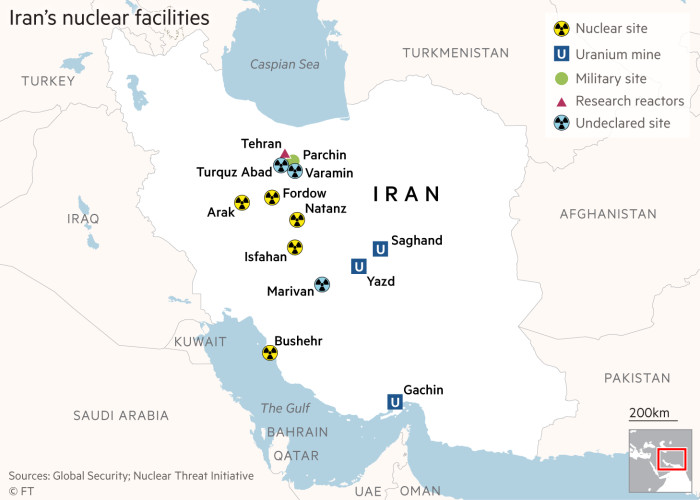
Yet despite Israel’s raid in Yemen, a strike on Iran’s nuclear programme — which is widely dispersed, with key elements in reinforced facilities deep underground — would be a far bigger task. Few observers think Israel could mount such an undertaking without US support, both to carry out the attack, and to ward off the Iranian response.
Amidror argued that whatever option Israel chose, the most important thing should be the message it delivered. “From my point of view, it doesn’t matter what. But it should be very precise and very decisive,” he said.
“We are not going to solve here the historical problems of Israel. What we want is to show Iranians that there is a price, a big one, that they will pay if they continue to attack Israel.”
Additional reporting by Henry Foy in Brussels
Data visualisation by Steven Bernard and Alan Smith